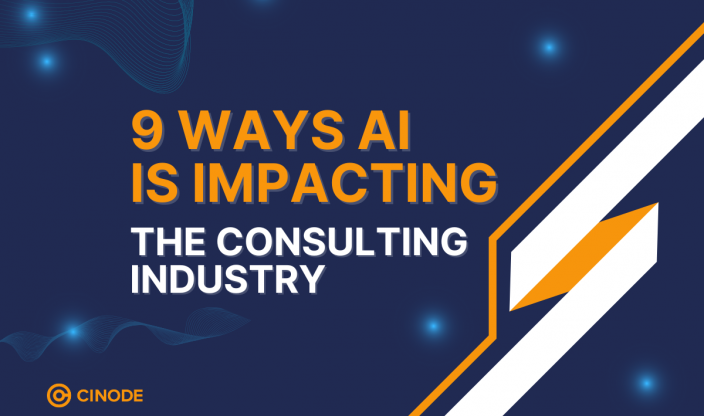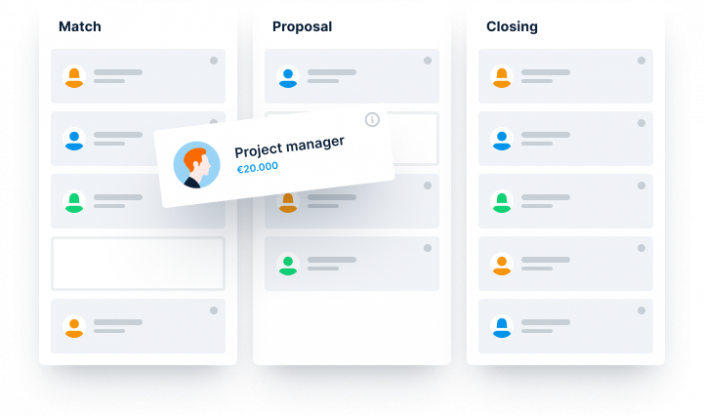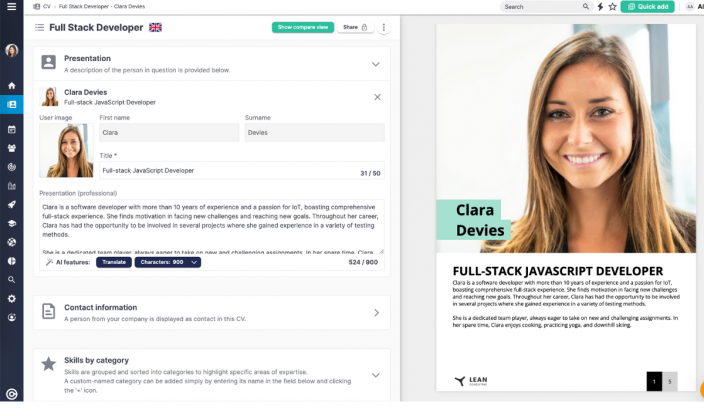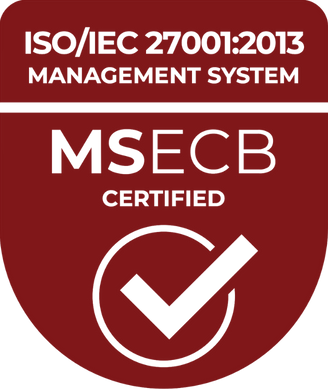This is how AI affects the consulting industry

Everyone is talking about AI right now, which is not surprising. The technology is here, and the possibilities are endless. Many companies are working hard to understand how this new technology can be beneficial for their specific business challenges. As a consulting firm, it is crucial to keep up with the development, but it is also not entirely straightforward.
There are many aspects that we as consultants need to consider. In this article, I have listed four points that are important for consulting firms to keep an eye on.
Who owns the code?
One challenge is the issue of intellectual property (IP) rights. In normal cases, the customer purchases the consultant’s solution and therefore owns the rights to the work the consultant has done. However, this is not the case when it comes to AI. If an AI generates the code in a project, does the AI then own the rights? Having clear ownership rights is important for several reasons, particularly when it comes to responsibility allocation. If something goes wrong in a project where the AI generated the code, whose responsibility is it? If you don’t own the code, you also cannot be held responsible for it.
Lawyers will face challenges with AI-related issues. We saw this earlier in the spring with the AI-generated Drake and The Weeknd song that went viral. It was quickly taken down from streaming services, but the problem remains. Who owns the rights? The one giving the task to the AI or the AI itself? These are problems that need to be resolved, and for us consultants, it is crucial to review how we structure our contracts.
Difficult to be an expert
Since the development is progressing rapidly, there are entirely new professions today within areas that most people were not even aware of a year ago. Prompt Engineering is one example – the “AI police” who restrict AI and are experts in writing instructions. It involves providing the description of the task that the AI is expected to perform embedded in the input, such as a question, instead of being explicitly given. It is an important skill to have for communicating, building with, and understanding the capabilities of LLMs (Language Model Models).
It is becoming increasingly challenging to keep up with the required competencies, and it is difficult to be an expert in a completely new technology. Another challenge is accessibility. A few years ago, the technology was reserved for a few experts, but now more people are knowledgeable about it. Our clients are becoming more informed and knowledgeable – they have themselves tested several AI tools and have an idea of what is possible. This is positive in many ways, but at the same time, it presents a challenge for the consultant.
You can allocate more time to value-added activities
Many times, consultants are assigned the mundane, tedious, and time-consuming tasks. This is expected to change with the help of AI tools. We may still be assigned the “boring” tasks, but with AI’s assistance, they can be completed much faster. AI may indeed take over some of our jobs, but more importantly, it will simplify our work and even create entirely new job opportunities in areas that we are not even familiar with yet. As a consultant, you will be able to allocate more time to activities that truly create value for the client.
Maintain your integrity
It’s easy to get caught up in the current AI frenzy – both as a consultant and a customer. Everyone is afraid of falling behind and, at the same time, wants to take advantage of the new technology and business opportunities that are emerging right now.
Personally, I view technological advancements positively, and I love the possibilities that all the new AI tools offer. However, it’s also important not to get swept away by the hype. As a consultant, you should hold onto your integrity and discourage the client from pursuing an AI project if you don’t see any value in it. Starting from the problem itself and not considering the technology is an age-old truth that is more important than ever – even when it’s tempting to work on an exciting AI solution. Business leaders struggling with AI-FoMo (Fear of Missing Out) need the assistance of a consultant who focuses on the business problem rather than the latest technology.

Guest Blogger: Dacil Hernandez, Director of Data & AI at the consulting firm Nagarro.
Guest Blogger: Dacil Hernandez, Director of Data & AI at the consulting firm Nagarro.
You may also like...
All posts
Jun 18 2024 · Consulting
Future-proof your business: steps towards an efficient, up-to-date, and sustainable consulting practice

Jun 07 2024 · Consulting
9 Ways AI is Impacting the Consulting Industry

May 28 2024 · Consulting, Konsult
Who is best at equality, really?

May 24 2024 · Consulting
Cinode Launches Europe-wide Fishing Competition for Consultants and Consultancies

May 17 2024 · Consulting
How AI and digital tools are reshaping the role of the consultant

May 11 2024 · Consulting
Get insights about your unassigned consultants

Apr 30 2024 · Consulting
Generative AI in combination with other digital platforms is the hub of the hybrid consultant

Apr 09 2024 · Cinode, Consulting
Your Consultant Resume on Autopilot with AI Support

Mar 28 2024 · Consulting
6 Easter Eggs to improve your Consultancy

Mar 26 2024 · Cinode, Consulting
8 Important Reasons to Expand Your Network of Subcontractors and Partners – And How to Do It!

Mar 19 2024 · Consulting
The hybrid consultant creates greater value for the customers, themselves, and the consulting company

Mar 12 2024 · Consulting
